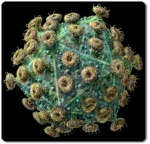This Funding Opportunity Announcement (FOA) is issued as an initiative of the NIH Blueprint for Neuroscience Research. The Neuroscience Blueprint is a collaborative framework through which 16 NIH Institutes, Centers and Offices jointly support neuroscience-related research, with the aim of accelerating discoveries and reducing the burden of nervous system disorders (for further information, see http://neuroscienceblueprint.nih.gov/). The overall purpose of this five year Human Connectome Project (HCP) is to develop and share knowledge about the structural and functional connectivity of the human brain. This purpose will be pursued through the following specific efforts: Existing, but cutting-edge, non-invasive imaging technologies will be optimized and combined to acquire structural and functional in vivo data about axonal projections and neural connections from brains of hundreds of healthy adults. Demographic data and data regarding sensory, motor, cognitive, emotional, and social function will also be collected for each subject, as will DNA samples and blood (to establish cell lines). Models to better understand and use these data will be developed. Connectivity patterns will be linked to existing architectonic data. Data and models will be made available to the research community immediately via a user-friendly system to include tools to query, organize, visualize and analyze data. Outreach activities will be conducted to engage and educate the research community about the imaging tools, data, models, and informatics tools. After five years, these specific efforts are expected to deliver: 1) A set of integrated, non-invasive imaging tools to obtain connectivity data from humans in vivo; 2) A high quality and well characterized, quantitative set of human connectivity data linked to behavioral and genetic data as well as to general, existing architectonic data, and associated models, from up to hundreds of healthy adult female and male subjects; and 3) Rapid, user-friendly dissemination of connectivity data, models, and tools to the research community via outreach activities and an informatics platform.
Current closing date for applications: November 25, 2009
Taken from this FOA
Ishani Ved, Rutgers University Student, VERTICES Public Health Intern

